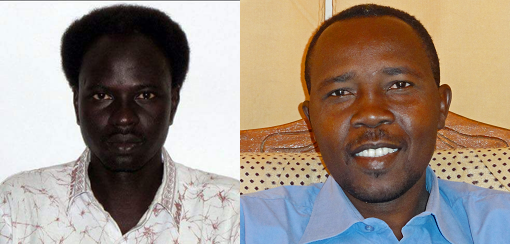Christianity is “not welcome” in Sudan, according to the lawyer who defended a church leader and an activist abruptly released from jail last month.
Muhanad Nur, who represented Rev. Hassan Abdulraheem Taour and Darfuri activist Abdumonem Abdumawla, told the Sudanese news service Nuba Reports: “It seems as if every week I am hearing about another case of Christians being persecuted here.”

Rev. Taour, who was released from Khartoum’s Kober prison, where political opponents are detained alongside terrorists, said: “It’s hard to remain in prison all that time, especially when we think about our families … But it was also a good experience for us – to help build up the Church in prison and encourage parishioners.”
The two Sudanese nationals, who had each been jailed for 12 years for aiding and abetting Czech Christian Petr Jašek in “spying”, were released following intervention from Ján Figeľ, the EU Special Envoy for the Promotion of Freedom of Religion or Belief outside the EU.
Government hostility towards churches and Christians in Sudan has increased since the predominantly Christian South Sudan gained independence in 2011, leaving behind a much diminished Christian population. Sudanese President Omar al-Bashir vowed to adopt a strict interpretation of Sharia (Islamic law) and in 2015 increased penalties for apostasy and blasphemy.
Meanwhile, Mr. Jašek revealed that one of the IS jihadists with whom he was imprisoned was a Libyan who boasted that he had beheaded 20 Coptic Christians in Libya.
Copts seeking work in Libya have been among the many civilians who have suffered at the hands of IS, who have been able to operate with impunity in the chaos that has followed the 2011 overthrow of President Muammar Gaddafi.
The most notorious incident in which Copts were beheaded was in January 2015, when IS released video footage showing jihadists murdering 20 Copts and one African convert to Christianity.
Mr. Jašek also said that before his arrest he had been spied upon by the regime. State prosecutors used video footage and photographs taken from Jašek’s laptop as evidence against him, such as footage Jašek took while interviewing Christians in the Nuba Mountains – an area in the south of Sudan where many Christians live and which has suffered regular bombardment by government forces.
“They were monitoring me,” Mr. Jašek told Nuba Reports. “They [Sudan’s security agents] showed photos of all the meetings I had with church members. There were even night photos – they were monitoring every step.”